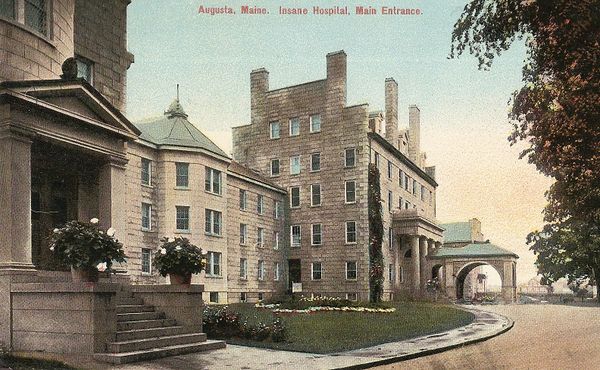Difference between revisions of "Portal:Featured Image Of The Week"
From Asylum Projects
M-Explorer (talk | contribs) |
M-Explorer (talk | contribs) |
||
| (67 intermediate revisions by the same user not shown) | |||
| Line 1: | Line 1: | ||
{{FIformat | {{FIformat | ||
| − | |Image= | + | |Image= Augusta5.jpg |
|Width= 600px | |Width= 600px | ||
| − | |Body= [[ | + | |Body= [[Augusta State Hospital|Prior to mental health hospitals]], the mentally ill were the responsibility of their families, and if their families could not cope, they were either put in poor houses, put out on the streets, or locked away in jail. Mental health reformer Dorothea Dix (1802-1887), a native of Hampden, Maine, worked closely with the second superintendent of the Augusta asylum, Issac Ray (appointed in 1841). The building was state-of-the-art when constructed. All parts had ventilation, lighting, heating, and water. Men and women had separate wings. |
}} | }} | ||
Revision as of 04:11, 5 April 2020
Featured Image Of The Week
Prior to mental health hospitals, the mentally ill were the responsibility of their families, and if their families could not cope, they were either put in poor houses, put out on the streets, or locked away in jail. Mental health reformer Dorothea Dix (1802-1887), a native of Hampden, Maine, worked closely with the second superintendent of the Augusta asylum, Issac Ray (appointed in 1841). The building was state-of-the-art when constructed. All parts had ventilation, lighting, heating, and water. Men and women had separate wings.
